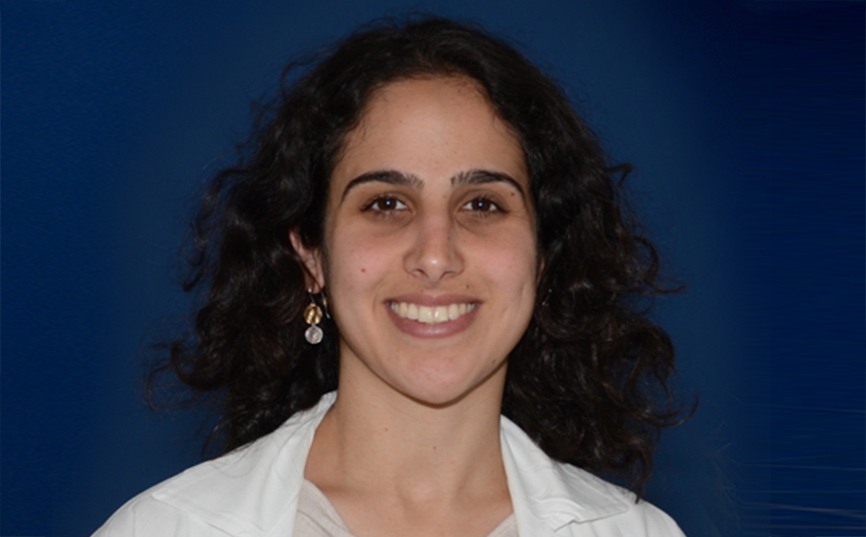An Unforgettable Learning Experience: Dr. Merav Ben David

1. Please provide an overview of your fellowship at your hospital and the role you played during your stay.
- I spent 3 weeks at both the Peripheral Neuropathy Clinical and Research Center at Weill
Cornell Medical College with Prof. Latov and the Weill Cornell Medical Center.
During that time, I observed a motor nerve biopsy procedure which was performed by experienced surgeons at the nearby Hospital for Special Surgery. I learned about the vital role of this procedure in the diagnostic workup of patients with motor peripheral nerve disease.
Moreover I attended daily nerve conduction and EMG testing of patients with peripheral
nerve disease, as well as clinics of neurologists in the field of peripheral neuropathy.
2. Describe how your fellowship opportunity has expanded your knowledge in your specific field.
- In both centers I was exposed to comprehensive investigations of patients with peripheral nerve diseases. This included learning about many tests that are not routinely performed in Rabin Medical Center. Additionally, I was exposed to clinical research done in the field of peripheral neuropathy. My knowledge in performing and interpreting nerve conduction and EMG tests has greatly improved. I have learned about the role of motor nerve biopsies in the evaluation of specific patients.
3. What did you enjoy most about your fellowship opportunity?
- I mostly enjoyed joining the peripheral nerve clinic with Dr. Michael Rubin at Weill
Cornell Medical Center. Dr. Rubin was extremely welcoming and contributed greatly to my knowledge.
4. Do you feel international medical relationships and fellowship programs are vital to the future of medicine and research?
- International medical relationships and Fellowship programs are important because they allow one to learn from the experience of others. Additionally, it allows one to adopt different test, procedure, and research methods that are done at other medical centers around the world.
5. Explain the major differences between the Israeli health care system and the United States private healthcare systems in terms of your specific field.
-
The major remarkable difference in the field of neurology and peripheral nerve disease relates to the comprehensiveness and rapidity of patient workup with neurological diseases in the USA. Israeli healthcare system provides basic testing and requires that the physician order generally high-yield, low-cost evaluations, therefore Israel doctors can potentially miss treatable diagnoses, as well as additional information leading that would lead to future research. Health care in the USA is based on private organizations financially enabling and ordering an extensive and rapid workup, which in addition to the described advantages, results in less exhaustion for the evaluated patients.
6. What do you feel are the key issues and challenges in your field – not only in the Unites States and Israel, but worldwide?
- In spite of research done in this field, the key challenges in peripheral nerve diseases worldwide is in still having many idiopathic peripheral neuropathies, as well as a lack of treatment for many of the known causes. In addition, simple and objective tests to demonstrate small fiber peripheral neuropathy are lacking.
7. What are your future plans at Rabin Medical Center when you return to Israel?
- When I return at Rabin Medical Center I must first complete my neurology residency, After this I hope to be engaged in a fellowship program in the field of peripheral nerve and muscle disease in the USA.
8. Would you recommend this fellowship to your peers? Why or why not?
- I would definitely recommend this fellowship to my peers. It has given me the opportunity to be highly exposed to patients and evaluations in my field. Additionally, I have been able to observe different methods of patient evaluation. I would also recommend to enable some exposure to peripheral nerve and muscle biopsies in the pathology lab.
Related Articles
Stanford University Hosts Rabin Medical Exchange Fellow
A letter from Dr. Leor Perl 2013 recipient of the Abraham & Yvonne Cohen Cardiac & Medical Research Fellowship at Stanford University.
Rabin Medical Exchange Fellow Dr. Leor Perl
Dr. Leor Perl, from Rabin Medical Center’s Cardiology Department, came to Stanford University’s Stanford Hospital & Clinics in March 2014 to complete a month-long Rabin Medical Exchange Fellowship in cardiology, under Dr. Alan Yeung, Director of Interventional Cardiology at Stanford’s School of Medicine.
An Unforgettable Learning Experience: Dr. Ifat Snir
I spent four weeks at the gastroenterology division of Mount Sinai hospital in NYC, and specifically at the IBD center (inflammatory bowel diseases). During that time I joined the doctors at their daily work, and specifically to Dr. Steven Itzkowitz, one of the senior doctors at the department.